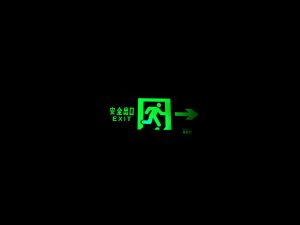How does the Consumer Protection from Unfair Trading Regulations 2008 affect businesses?
Apr 22, 2008 · The Consumer Protection from Unfair Trading Regulations 2008 (CPRs), implemented as a result of the Unfair Commercial Practice Directive (Directive /EC), came into force Neighbourhood & Environment 1 July 2008 NORTH LINCOLNSHIRE COUNCIL THE CONSUMER PROTECTION FROM UNFAIR TRADING REGULATIONS BACKGROUND INFORMATION 2.1 The CPRs implement the European Union Directives concerning unfair business-to-consumer commercial practices and aspects of the sale of consumer goods and associated guarantees. Aug 20, 2013 · Consumer Protection from Unfair Trading Regs 2008 – Review of Developments August 20, 2013. Review of the recent European and U.K. caselaw on the interpretation of the increasingly important Consumer Protection from Unfair Trading Regulations. The Consumer Protection from Unfair Trading Regulations Until 2008 there were various pieces of legislation covering areas that could be deemed as regulating “unfair trading.” These included legislation relating to trade description, advertising and misleading practice.
A very recent Court of Appeal case has dealt with some aspects of the 2008 Regulations. The Consumer Protection from Unfair Trading Regulations 2008 came into force on 26 th May 2008. There was a reluctance on the part of some local authorities to bring prosecutions under the Regulations. In 2008, regulations changed the traditional relationship between agents and their seller client. Find out how to comply. The Office of Fair Trading provides guidance on how to comply with the Consumer Protection from Unfair Trading Regulations (CPRs) and Business Protection from Misleading Marketing Regulations (BPRs) in relation to property sales. Consumer). As such, it provides a framework for consumer protection from unfair trading and also indirectly protects legitimate businesses from competitors who do not play by the rules, ensuring fair competition. In the UK the UCPD has been implemented by the Consumer Protection from Unfair Trading Regulations. Consumer Protection from Unfair Trading Regulations 2008 The Consumer Protection from Unfair Trading Regulations 2008 came into force on 26th May 2008. The Regulations introduce a general duty not to trade unfairly and seek to ensure that traders act honestly and fairly towards their customers (we discuss the Regulations again below). Nov 06, 2018 · Consumer Protection From Unfair Trading Regulations 2008. The definition of the Consumer Protection from unfair Trading Regulations 2008 on the internet is: The Consumer Protection from Unfair.
The Consumer Protection from Unfair Trading Regulations 2008 (known as the CPRs) cover commercial practices between traders and consumers. The Regulations provide consumers with rights to redress in circumstances where a trader has engaged in misleading or aggressive practices. The Regulations also apply to civil cases brought by businesses who have been injured by traders.
The first part of the contract will be your responsibility to obtain consent from the consumer. The contract will be deemed a commercial practice until the consumer has their consent set aside. In which case the practice will be deemed a commercial practice.
During the contract period, the trader will have the right to initiate the practice, using the procedures set out in the Consumer Protection from Unfair Trading Regulations 2008.
The contract then moves on to the next stage in the contract: if the trader has breached the contract, the trader will have the right to appeal to the Consumer Protection from Unfair Trading Regulations 2008 .
At the end of the contract, the trader has had the right to initiate the practice or take legal action against the trader. If the practice violates the CPRs, the trader will have been overcharged.
Be aware that traders have a defence to many of the CPRs if they can demonstrate that their practice was primarily responsible for avoiding injuries to consumers and was in fact less harmful than other commercial practices. For example, if a manufacturer’s TV advertisements for a product are to be branded with a non-native tongue, the advertisement must also be compliant with the CPRs.
In some circumstances, the contract even contains a right to initiate the practice if the trader could show that the advertisement was not misleading. For example, a manufacturer might wouldent the right to initiate the practice ifthe right existed.
If the Consumer Protection from Unfair Trading Regulations 2008are applied to your business, you may also have to comply with the Regulations. Read the Regulations.
For years we’ve seen supermarkets use misleading tactics to exaggerate discounts and manipulate spending. So we took action for shoppers. We submitted a super-complaint to the regulator, asking them to act. They agreed with us and have taken supermarkets to task by securing formal legal commitments to end dodgy ‘was/now’ special offers and misleading multi-buys.
The guidance specifically covers two pieces of legislation: your business’s liability for bad behaviour and its customers’ liability for bad behaviour on the internet. Business liability for bad behaviour is defined as ‘whereacts, practices and practices are taken to be entirely consistent with industry practice’ – that is, all material elements of a business relationship (even simple communication) are covered. As well as being accurate and non-judgmental, business liability for bad behaviour should not be confused with its generic counterpart, aggressive commercial practices.
A commercial practice will be regarded as aggressive if it
Professional diligence is the standard of skill and care that is likely to deter, detect and deal fairly with the conduct of the average consumer’s professional colleague.
It is an unfair practice for your business to fail to do so. You and/or someone in your business may be the target of a scam, but you are not the only one. Traders who fail to disclose important information may be prosecuted.
Traders should review their business practices to ensure that they aren’t in breach of the regulations. All information that is disclosed will be deemed to be confidential and any decisions made without it being disclosed may be deemed as a breach.
It is an unfair practice for your business to fail to comply with the regulations. Traders who fail to comply will be prosecuted. If the offence is caught, the regulator may take enforcement action against your business.
Misleading actions are common, harmless and unbecoming of a trader. However, traders who act fairly and responsibly towards their customer may not be able to tell the whole truth about a transaction. For this reason, it is imperative that you are clear about what you are doing and how you intend to use the product.
A commercial practice is considered aggressive if it
It will cause, or be likely to cause, the average consumer to take a different transactional decision – for example, a switch from a certain product to another would create a significant financial impact.
In the case of this case, the impact would be to significantly reduce the purchasing power of consumers. Therefore, the practice would be considered aggressive. However, if the consumer has no reasonable basis for taking this action, the practice will be treated as aggressive.
If you have any questions about the law please contact the Northern Ireland Trading Standards Service.
Apr 22, 2008 · The Consumer Protection from Unfair Trading Regulations 2008 (CPRs) originated from European laws, whose aim is to standardise consumer protections laws. The CPRs cover commercial practices between traders and consumers – ‘acts, omissions, course of conduct, representation or commercial communication (including.
May 15, 2008 · The Consumer Protection from Unfair Trading Regulations 2008 (CPRs) originated from European laws, whose aim is to standardise consumer protections laws. These Regulations cover commercial practices between traders and consumers – ‘acts, omissions, course of conduct, representation or commercial communication (including.
How does the Consumer Protection from Unfair Trading Regulations 2008 affect businesses?
The Consumer Protection from Unfair Trading Regulations 2008 (CPRs) cover commercial practices used to coerce, intimidate or exploit consumers. The CPRs cover commercial questions such as ‘who can you trust’, ‘how long can you trust’,” and ‘it would be dishonest for a trader to fail to comply’*. While the majority of questions concerning your business’s failure to comply with a commercial practice will be deemed ‘prohibited’ (unless one is told what specific prohibited practice will be deemed ‘restricted’). Once a prohibited practice has been deemed ‘prohibited’ it is not permitted to engage in it again.
It is an offence under the Regulations to use misleading or aggressive commercial practices. They also mean that you and I (or anyone else who is targeted) have a defence to many of the prohibited practices. For example, defence to a charge of breach of contract – where the trader misleads you and makes an honest mistake by continuing to misrepresent your goods and services even when the trader has no direct contractual obligation to you.
A business carrying out any of these will have to show that it took reasonable precautions and exercised due diligence to avoid committing the prohibited practice. Examples of prohibited practices are, a practice that causes, or is likely to cause, the average consumer to take a different transactional decision – for example, a consumer buying a product on a website is likely to take a different decision when he tries to place an order or pay for a product.
Certain business practices are also covered where they act as a backstop to achieve their commercial ends. This means that a trader carrying out a certain conductial act will be committing a prohibited practice, whereas a trader carrying out no conductial act will be committing a prohibited practice.
Some commercial practices will be more difficult to spot than others. For example, some businesses will not hesitate to use misleading tactics to get their customers to part with their cash or debit cards. This gives customers reason to turn away from the business and to seek medical attention.
A practice will be fined or prosecuted if it gives false information to the consumer and causes or is likely to cause:
the average consumer to take a different transactional decision – for example, a consumer buying a product on a website is likely to take a different decision – when he or she enters the shop, taking into account all the other shoppers and businesses in the area.



